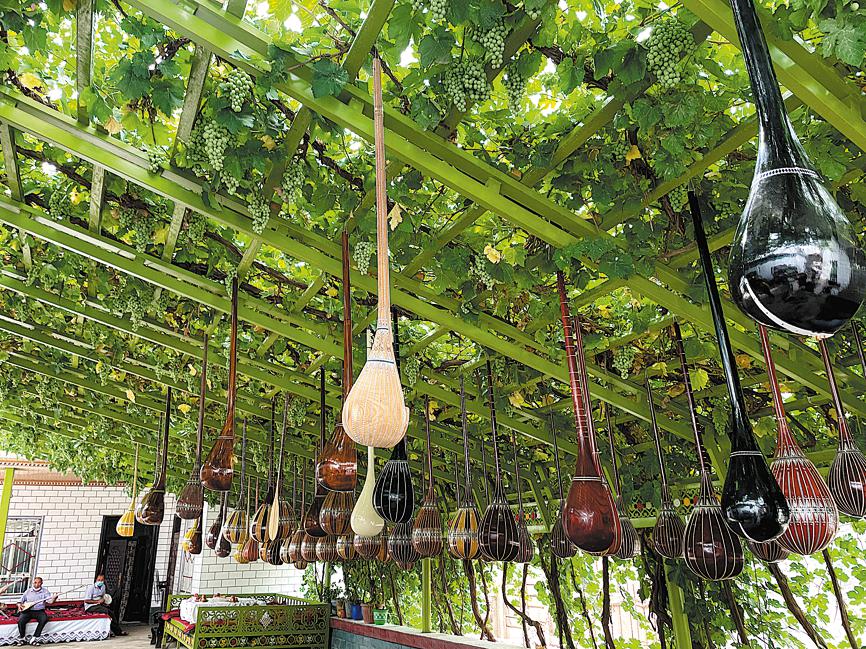

More inheritors
As one of the village's consummate instrument makers, Ayit is determined that more of his fellow villagers benefit from the craftsmanship.
He has offered free training to more than 200 people from Jiayi and nearby villages, and tried to recruit more unemployed villagers to his cooperative to increase employment.
He is also working on adapting some types of the traditional Uygur instruments in order to make them easier to play.
"I believe that if it's easier for people to learn how to play the instruments, they are more likely to enjoy and relish them. That will help increase the popularity of traditional Uygur instruments and ensure they are passed down to future generations," says Ayit.
One of Ayit's pastimes is singing while playing the dutar-a traditional long-necked lute with two strings-under the grape trellis in his yard.
His 16-year-old daughter Rayhangul Ayit dances while he plays, spinning and swaying gracefully to the music.
Rayhangul is studying preschool education as her major at a local college and wants to be a kindergarten teacher in the future.
"I've learned how to play the dutar from my father," she says. "And I hope one day I can play folk music for my students using my father's handmade instruments."
More than 25 million yuan has been invested by the local government to convert Jiayi village into a scenic area. The work includes a tourist reception center, a musical instrument museum and an exhibition center to show the diverse folk customs in Xiyu, "the western regions". This term refers to the numerous ancient regimes that once existed in the vast territory of today's Xinjiang, and Central Asia.
Some experienced instrument makers have set up their workshops near the exhibition center, making it easier for visitors to understand the process and hear the melodious sounds the instruments make.